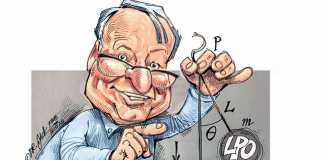The approach of the animal rights movement consists of two components: the belief that stripping wildlife of all tangible values will save it and the manipulation of ordinary people’s well-meaning empathy for individual animals.
To reach its objective, the movement uses huge public propaganda budgets that mobilise millions of followers to spread their messages in a flurry of effective political lobbying and social media campaigning.
Those who understand conservation recognise that the animal rights groups are increasingly and blatantly dishonest by distorting, ignoring and misinterpreting science and hard facts. Nevertheless, the animal rights people are winning the debate with the argument that hunting is anachronistic, unsustainable and immoral or unethical.
It requires more than science
In the meantime, the proponents of sustainable use of wildlife sit back, confident that science and facts will speak for themselves when in reality, they don’t. Instead, they should be presenting their case face-to-face because that is what the animals rights movement is doing.
According to one participant in the debate, the important issue is not how hunters are able or unable to argue the potential benefits of sustainable use and hunting but what they are saying. They need to be cognisant and honest that it is not only the message delivery, but also that their messages are not palatable and seemingly becoming less so.
In the words of another debater, hiring articulate scientists will not be enough to counter the animal rights behemoth. The proponents of sustainable hunting need to reach the ear of the media and the public and through them, politicians.
The sustainable hunting debate
While all decent hunters will subscribe to banning canned shooting, the producers of the documentary Blood Lions could not resist discrediting and attaching a stigma to all hunting. Yet even here there is irony. Producer Pippa Hankinson sits on the board of the Global White Lion Protection Trust, which spends most of its donor funds on captive-bred lions. The documentary makes it clear that captive-bred lions have no conservation value, yet Hankinson does not apply this to her own white pets.
This documentary, together with the Zimbabwean lion case, have shown that expressive human voices go a lot further than a few scientific facts lingering in peer-reviewed journals.
Hunters need to find the financial resources, philanthropic support of foundations and smart billionaires to package the messages of sustainable utilisation and with it, the conservation contributions of sustainable and regulated hunting in a way that the public can understand and find acceptable. They must do this fast and aggressively to counter the gobbledygook presented by the animal rights faction as well as the potential and real threats to biodiversity and conservation.
If the attack on sustainable utilisation and hunting is not faced and won in the court of public opinion, wildlife and natural habitats will disappear more quickly than anyone has predicted. Game ranchers are unlikely to keep wildlife, and hence maintain the habitat, unless it is profitable.
The keys to a solution are sustained, strategically targeted, well-resourced science-based messages, documentaries, school programmes, publications and articles that are understandable to the man or woman in the street, and expert participation in popular talk shows. The only obstacle in rolling these out is hunters’ failure to find and globally pool adequate financial resources, and on occasion, petty institutional jealousies.
According to Robert Kenward of the European Sustainable Use Group of the International Union for the Conservation of Nature, some of the more rational members of the opposition will agree that the wildlife which competes with other land use forms is unlikely to survive in the longer term as a priceless, but paradoxically, commercially valueless asset.
Hunters need to enter into a constructive dialogue with them to plan for win-win outcomes that will improve hunting regulations, promote best practice in hunting and animal welfare, engage local communities and encourage co-existence with natural systems.
I agree with Kenward that there is a need for outreach through the multilingual communication of very simple messages, based on good peer-reviewed research, collated for practical application via broadcast and social media, as well as through in-depth messages based on good research on dedicated websites.
Large hunting and conservation associations of the world must recognise the immense challenge that sustainable use is facing, and with it, valued traditions and passion for sustainable hunting. These associations include various North American clubs, European Federation of Associations for Hunting and Conservation, the International Council for Game and Wildlife Conservation and all the respective national associations and clubs.
There is a host of potential allies out there – may the leaders in sustainable hunting rise to the challenge. – Roelof Bezuidenhout
A version of this article first appeared in African Indaba Vol.13-05. Also see www.cic-wildlife.org and www.africanindaba.com.












